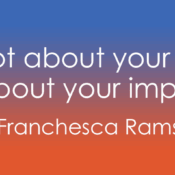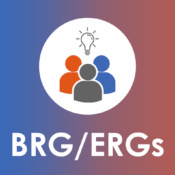
Staying in Your Lane: The Value of Expertise vs. Lived Experience as Consultants
As consultants, we pride ourselves on our expertise. We delve deep into industries, research best practices, and develop strategies to help our clients succeed. But there’s a crucial distinction that consultants may overlook: the difference between professional expertise and lived experience. When it comes to working with marginalized communities, especially the signing Deaf and hard of hearing community, this distinction holds cultural and linguistic significance and, in turn, becomes paramount.
Lately, I’ve seen a concerning trend: individuals who are “claiming” spaces that should be owned and represented by signing Deaf and hard of hearing individuals. These include individuals who are hearing and may or may not know American Sign Language (ASL), as well as non-signing Deaf and hard of hearing individuals.
Too often, these self-proclaimed “experts” have represented the signing Deaf and hard of hearing community - offering advice, perspectives and solutions rooted in academic resources or secondhand information, rather than lived experiences. Many use their networks and social platforms to disseminate “advice” as a trusted source - oftentimes leaving those outside of the community space to accept their word as gospel.
While well-intentioned, these approaches fall short and can lead to harmful impacts on those Deaf and hard of hearing individuals who primarily use ASL to communicate.
This predicament feels akin to someone who has only read about swimming offering to coach an Olympic swimmer – the fundamental understanding might be there, but the nuanced, real-world application is missing. Solutions based in reality - including unique linguistic and cultural aspects - are crucial to consider when seeking to deliver successful experiences for the signing Deaf and hard of hearing community.
This experience is not exclusive to the signing Deaf and hard of hearing community. It mirrors the challenges faced by other marginalized groups. Imagine a consultant without the lived experience of being a woman dictating strategies on how to best engage female employees without understanding the subtle biases and systemic challenges faced daily. Or picture someone advising on LGBTQ+ inclusion initiatives without grasping the complexities of identity, discrimination, and the importance of authentic representation. The same holds true for consultants advising on BIPOC-related barriers without fully understanding the historical and ongoing impact of racism and systemic inequality.
In the context of disability, in particular, those suggesting “accessibility-related solutions” without fully comprehending the barriers faced by people with disabilities may ultimately lead to ineffective measures of action, community distrust, and freshly-instilled systemic barriers.
Digging deeper, when we address the signing Deaf and hard of hearing community, an additional layer of complexity emerges: language. For many Deaf and hard of hearing individuals, ASL extends beyond a mode of communication - it’s their native and primary language, deeply intertwined with culture and identity.
Ultimately, to claim expertise in this area without fluency and innate cultural understanding is especially problematic. Imagine offering marketing advice to a company targeting a French-speaking market without knowing French – you’ll inevitably miss crucial linguistic nuances and cultural references… thus completely missing the mark!
In my work as a consultant, I’ve witnessed countless situations across various industries where trusted experts lack the key element of lived experiences, yet feel equipped to provide all-encompassing “solutions” which end up failing to achieve the desired outcome. For instance, suggesting ASL as the sole sign language interpretation offering for events at a global company. Even further, touting a company’s conceptual accessibility solution despite push back from the community that is supposedly going to benefit from this solution.
There are numerous drawbacks to representation lacking the key element of lived experience - especially in the context of the signing Deaf and hard of hearing community. A few core themes remain prevalent across industries and contexts, which I’ve documented below:
- Representation Without Depth Causes Harm: True expertise in working with the signing Deaf and hard of hearing community requires not just knowledge about deafness, but linguistic competence and a deep understanding of the community’s cultural norms, values and experiences. Anything less risks exclusion, tokenism, or misrepresentation. Ultimately, this can lead to ineffective accessibility solutions that may result in harm and disparate impacts on the community that the organization intends to serve.
- Perpetuating Audist Assumptions: Without understanding the lived experience of navigating a hearing-centric world as a signing Deaf or hard of hearing individual, consultants may inadvertently perpetuate audist assumptions and recommend solutions that are not truly accessible or inclusive. Audism is the discriminatory attitude or belief that hearing people and spoken language are superior to Deaf people and signed languages, respectively. It is rooted in the notion that there is a “better way” to be Deaf or hard of hearing (via hearing aids, cochlear implants, speech therapy, etc.) - leaving those who assimilate into the hearing world at an advantage. Just as with any population group, there are variations in experiences, perspectives, and preferences based on factors such as age, race, socioeconomic status, education, and individual communication preferences. Therefore, any engagement strategy should strive to be inclusive and avoid making generalizations. The result of biased assumptions leads to discriminatory experiences for many. After all, there is no effective “one size fits all” approach to accessibility.
- Accessibility Without Insight Risks Exclusion: Sharing unintentional and uninformed “advice” without cultural context leads to opportunities for new systemic barriers to fall in place. Especially in the age of technology, there are many who believe technological innovations, including those rooted in AI, can provide accessibility benefits. For some, this may be true - but not all. What may appear as a “good solution” for someone may not hold true for the next person. It’s crucial to remain culturally informed to avoid instilling new, uncharted barriers for the disability community in particular.
- Eroding Trust and Authenticity: When working with the signing Deaf and hard of hearing community, linguistic accessibility and cultural understanding are foundational to building trust. Individuals can quickly discern when someone lacks language fluency and cultural awareness, hindering meaningful collaboration.
Needless to say, the list could go on. There are countless ways in which I’ve witnessed systemic biases perpetuated by those who lack cultural, lived context. The grass is truly greener on the other side. There are immediate, tangible, impactful benefits that can be realized by ensuring affected members of any marginalized community are seen and heard.
The question remains: How can you break down systemic barriers and ensure effective accessibility methods for the signing Deaf and hard of hearing Community?
- Collaborate with Deaf and Signing Professionals: Work in genuine partnership with Deaf and hard of hearing professionals who are fluent in ASL and deeply embedded in the signing Deaf and hard of hearing community. By working in tandem, you’ll ensure their linguistic and cultural perspectives are central to the development of any strategies or solutions. This directly empowers the community to lead their own advocacy and development efforts. Ensuring the community at hand is represented leads to impactful outcomes such as reduction in accessibility gaps and improved experiences.
- Amplify Authentic Representation: Use platforms to amplify the perspectives and expertise of signing Deaf and hard of hearing individuals. Instead of positioning yourself as the expert, create space for community members to share their own stories, perspectives, and language.
- Focus on Transferable Skills While Respecting Linguistic and Cultural Differences: Recognize the transferable skills you bring – strategic thinking, problem-solving, project management – and apply them in a way that supports the signing Deaf and hard of hearing community's self-defined linguistic and cultural needs and goals, rather than imposing your assumptions based on hearing norms.
- Understand When the Lack of ASL Fluency and Cultural Understanding is a Barrier: Sometimes, the most valuable contribution one can make is recognizing when a lack of sign language fluency and cultural understanding limits their ability to provide truly effective guidance. Instead, one would be better off recommending consultants or experts from the signing Deaf and hard of hearing community who are fluent in their language, deeply understand Deaf culture, and have first-hand experiences navigating life as signing individuals.
I encourage us all to approach our work with the signing Deaf and hard of hearing community with humility and a profound respect for its language and culture. True expertise in this area lies not just in our knowledge base, but in our ability to recognize the critical importance of linguistic competence and cultural understanding, and to prioritize the perspectives and experiences of those who communicate and live in a fundamentally different linguistic and cultural world. Effective allyship involves using one's privilege to amplify Deaf perspectives and advocate with them for their rights, rather than speaking over or on behalf of them.
Let's drive change by “staying in our lane” and ensuring our contributions are truly valuable, linguistically accessible, and culturally respectful.



